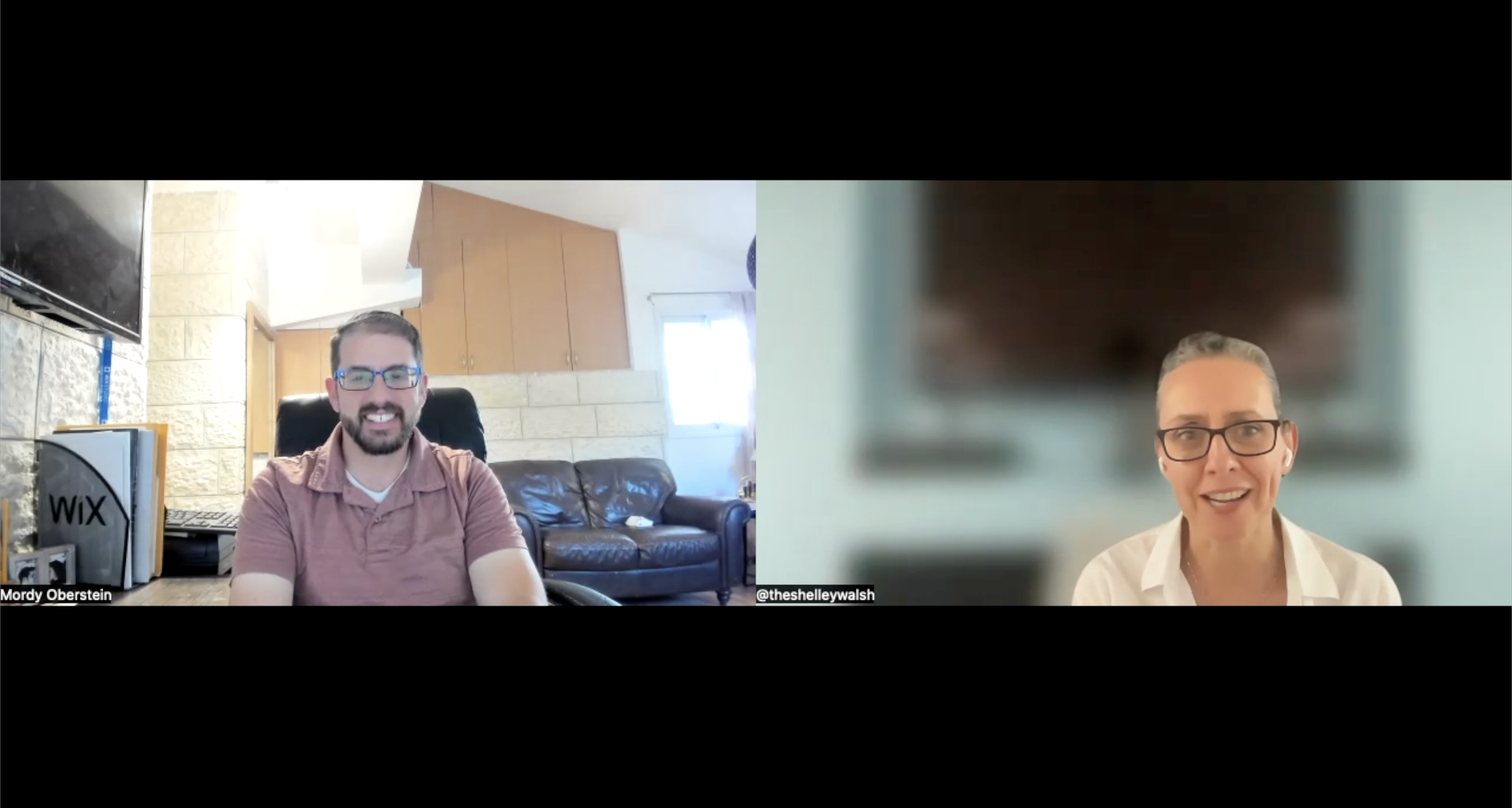For the SEO industry, the Google documents leak offered an important view behind the scenes. Although the leak was not a blueprint of how the algorithm worked, there was considerable confirmation that SEO professionals were right about many elements of the algorithm.
From all the analysis and discussion following the leak, the one insight that got my attention was how important the brand is.
Rand Fishkin, who broke the leak, said this:
“Brand matters more than anything else … If there was one universal piece of advice I had for marketers seeking to broadly improve their organic search rankings and traffic, it would be: “Build a notable, popular, well-recognized brand in your space, outside of Google search.”
Mike King echoed this statement with the following observation:
“All these potential demotions can inform a strategy, but it boils down to making stellar content with strong user experience and building a brand, if we’re being honest.”
Mordy Oberstein, who is an advocate for building a brand online, posted on X (Twitter):
“I am SO happy that the SEO conversation has shifted to thinking about “brand.”
It’s not the first time that “brand” has been mentioned in SEO. We began to talk about this around 2012 after the impact of Panda and Penguin when it first became apparent that Google’s aim was to put more emphasis on brand.
Compounding this is the introduction of AI, which has accelerated the importance of taking a more holistic approach to online marketing with less reliance on Google SERPs.
When I spoke to Pedro Dias, he said, “We need to focus more than ever on building our own communities with users aligned to our brands.”
As someone who had 15 years of offline experience in marketing, design, and business before moving into SEO, I have always said that having this wide knowledge allows me to take a holistic view of SEO. So, I welcome the mindset shift towards building a brand online.
As part of his X/Twitter post, Mordy also said:
“I am SO happy that the SEO conversation has shifted to thinking about “brand” (a lot of which is the direct result of @randfish’s & @iPullRank’s great advice following the “Google leaks”).
As someone who has straddled the brand marketing and SEO world for the better part of 10 years – branding is A LOT harder than many SEOs would think and will be a HUGE adjustment for many SEOs.”
Following his X/Twitter post, I reached out to Mordy Oberstein, Head of SEO Brand at Wix, to have a conversation about branding and SEO.
What Do SEO Pros Need To Know About ‘Brand’ To Make The Mindset Shift?
I asked Mordy, “In your opinion, what does brand and building a brand mean, and can SEO pros make this mindset shift?”
Mordy responded, “Brand building basically means creating a connection between one entity and another entity, meaning the company and the audience.
It’s two people meeting, and that convergence is the building of a brand. It’s very much a relationship. And I think that’s what makes it hard for SEOs. It’s a different way of thinking; it’s not linear, and there aren’t always metrics that you can measure it by.
I’m not saying you don’t use data, or you don’t have data, but it’s harder to measure to tell a full story.
You’re trying to pick up on latent signals. A lot of the conversation is unconscious.
It’s all about the micro things that compound. So, you have to think about everything you do, every signal, to ensure that it is aligned with the brand.
For example, a website writes about ‘what is a tax return.’ However, if I’m a professional accountant and I see this on your blog, I might think this isn’t relevant to me because you’re sending me a signal that you’re very basic. I don’t need to know what a tax return is; I have a master’s degree in accounting.
The latent signals that you’re sending can be very subtle, but this is where it is a mindset shift for SEO.”
I recalled a recent conversation with Pedro Dias in which he stressed it was important to put your users front and center and create content that is relevant to them. Targeting high-volume keywords is not going to connect with your audience. Instead, think about what is going to engage, interest, and entertain them.
I went on to say that for some time, the discussion online has been about SEO pros shifting away from the keyword-first approach. However, the consequences of moving away from a focus on traffic and clicks will mean we are likely to experience a temporary decline in performance.
How Does An SEO Professional Sell This To Stakeholders – How Do They Measure Success?
I asked Mordy, “How do you justify this approach to stakeholders – how do they measure success?”
Mordy replied, “I think selling SEO will become harder over time. But, if you don’t consider the brand aspect, then you could be missing the point of what is happening. It’s not about accepting lower volumes of traffic; it’s that traffic will be more targeted.
You might see less traffic right now, but the idea is to gain a digital presence and create digital momentum that will result in more qualified traffic in the long term.”
Mordy went on to say, “It’s going to be a habit to break out of, just like when you have to go on a diet for a long-term health gain.
The ecosystem will change, and it will force change to our approach. SEOs may not have paid attention to the Google leak documents, but I think they will pay attention as the entire ecosystem shifts – they won’t have a choice.
I also think C-level will send a message that they don’t care about overall traffic numbers, but do care about whether a user appreciates what they are producing and that the brand is differentiated in some way.”
How Might The Industry Segment And What Will Be The Important Roles?
I interjected to make the point that it does look a lot like SEO is finally making that shift across marketing.
Technical SEO will always be important, and paid/programmatic will remain important because it is directly attributable.
For the rest of SEO, I anticipate it merges across brand, SEO, and content into a hybrid strategy role that will straddle those disciplines.
What we thought of as “traditional SEO” will fall away, and SEO will become absorbed into marketing.
In response, Mordy agreed and thought that SEO traffic is part of a wider scope or part of a wider paradigm, and it will sit under brand and communications.
An SEO pro that functions as part of the wider marketing and thinks about how we are driving revenue, how we are driving growth, what kind of growth we are driving, and using SEO as a vehicle to that.
The final point I raised was about social media and whether that would become a more combined facet of SEO and overall online marketing.
Mordy likened Google to a moth attracted to the biggest digital light.
He said, “Social media is a huge vehicle for building momentum and the required digital presence.
For example, the more active I am on social media, the more organic branded searches I gain through Google Search. I can see the correlation between that.
I don’t think that Google is ignoring branded searches, and it makes a semantic connection.”
SEO Will Shift To Include Brand And Marketing
The conversation I had with Mordy raised an interesting perspective that SEO will have to make significant shifts to a brand and marketing mindset.
The full impact of AI on Google SERPs and how the industry might change is yet to be realized. But, I strongly recommend that anyone in SEO consider how they can start to take a brand-first approach to their strategy and the content they create.
I suggest building and measuring relationships with audiences based on how they connect with your brand and moving away from any strategy based on chasing high-volume keywords.
Think about what the user will do once you get the click – that is where the real value lies.
Get ahead of the changes that are coming.
Thank you to Mordy Oberstein for offering his opinion and being my guest on IMHO.
More resources:
- Why Brand Awareness Is The Fifth Pillar Of SEO
- Building Brand Authenticity Through Community
- SEO Strategy: A Full Year Blueprint (+Template)
Featured Image by author






![AI Overviews: We Reverse-Engineered Them So You Don't Have To [+ What You Need To Do Next]](https://www.searchenginejournal.com/wp-content/uploads/2025/04/sidebar1x-455.png)